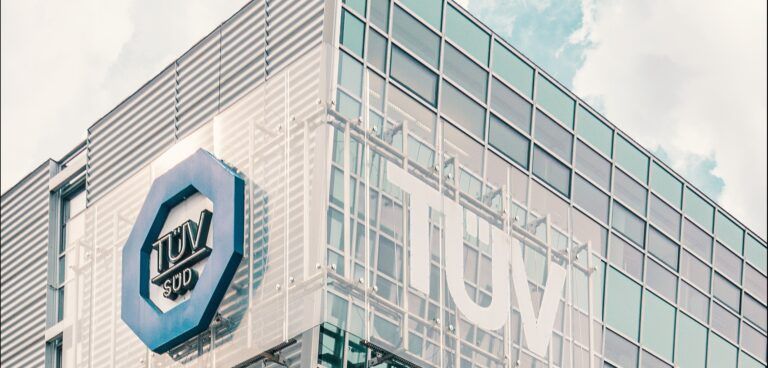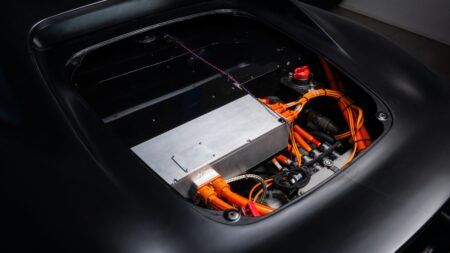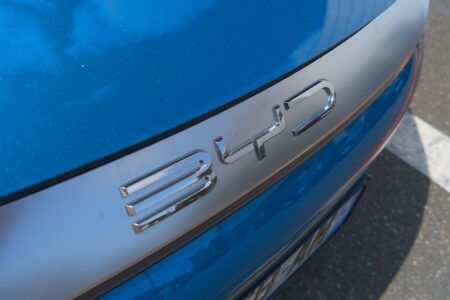The reassuring ability for electric vehicle owners to charge from any domestic or industrial power socket in the world requires the right hardware, which to this point hasn’t been available. However, following three months of safety standards testing by TÜV SÜD the first 22kW portable charging station has successfully proved compliance with the latest IEC 62752 requirements.
Created by Juice Technology, a manufacturer specialized in portable charging stations, the Juice Booster 2 is a portable device that can connect to all sockets, automatically adjusting to the optimum charging power.
To ensure safety and quality, Juice Technology sought certification from an independent body for compliance.
The harmonized IEC 62752 standard covers portable charging stations across the world. This complex, extensive guide sets out technical requirements and test instructions to guarantee safe and reliable charging stations. Manufacturers who are able to display the familiar CE marking on their equipment can use it to confirm that their product complies with the latest specific European guidelines. “Unfortunately, given that this is a very new sector, there are some products on the market that don’t comply with the standards. But the customer must be able to rely on the functionality and safety of the charging infrastructure – no ifs or buts. Having Juice Booster 2 TÜV-certified is the ideal situation, and a pioneering step in the right direction,” acknowledges Krispin Romang, managing director of Swiss eMobility, an association promoting the development of electromobility in Switzerland.
The whole testing program takes three months from start to finish. The equipment has to undergo extensive electrical and mechanical tests, to say nothing of leak tests, stability and vibration checks. Over 40 Juice Booster 2 devices were put through a grueling test regime and passed in all aspects.
“The particular challenge when testing a portable charging station of this kind for compliance with the current standard is the fact that it doesn’t just look at electrical safety. The charging station also has to satisfy the requirements in other areas such as chemical resistance, for example. Testing for compliance with IEC 62752 gives our customers the confidence that they are buying a safe piece of kit. This certification differs from the serviceability tests offered by the testing organizations in other countries, as these tend to concentrate on usage and durability of the equipment, but don’t actually test whether the device is safe. Such tests merely confirm that the device can be used for the advertised purpose,” explains Bernd Kreitmeier, head of the Energy Systems Department at TÜV SÜD.





